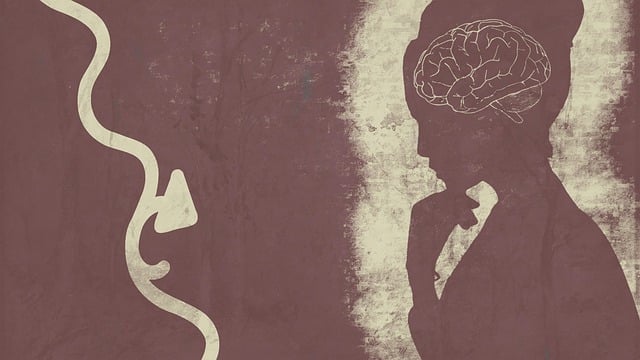Depression, a complex mental health disorder, is prevented through a multi-faceted approach targeting both mental health conditions and building resilience. Strategies include community outreach, early intervention, compassion cultivation, and culturally sensitive healthcare. For diverse individuals, Centennial Adjustment Disorder Therapy (CADT) teaches healthy coping mechanisms, enhances problem-solving skills, and promotes adaptability. Additional methods like mindfulness meditation, stress management workshops, and social skills training reduce isolation, a common risk factor for depression. Lifestyle changes, such as regular physical activity, self-awareness exercises, and yoga, coupled with professional support through CADT, protect against depression by fostering emotional regulation and improving communication in relationships.
Depression is a prevalent mental health challenge, but prevention strategies can be empowering. This article explores practical approaches to combat this condition, offering insights into understanding its triggers, from genetic predispositions to environmental stressors. We delve into therapeutic techniques such as Centennial Adjustment Disorder Therapy, highlighting their effectiveness in managing symptoms. Additionally, it provides lifestyle modifications and coping skills that promote resilience and overall well-being, emphasizing the importance of a holistic prevention strategy.
- Understanding Depression and its Triggers
- Therapeutic Approaches for Prevention
- Lifestyle Changes and Coping Mechanisms
Understanding Depression and its Triggers

Depression is a complex mental health disorder that significantly impacts an individual’s daily functioning and overall well-being. It goes beyond fleeting feelings of sadness or disappointment; instead, it’s characterized by persistent low mood, loss of interest in activities once enjoyed, changes in appetite and sleep patterns, fatigue, difficulty concentrating, and, in severe cases, suicidal thoughts. Understanding what triggers depression is crucial for effective prevention strategies.
Many factors can contribute to the development of depression, including genetic predisposition, brain chemistry imbalances, hormonal changes, traumatic life events, chronic illnesses, substance abuse, and environmental stressors. For instance, a person with Centennial Adjustment Disorder may struggle to cope with significant life transitions or trauma, leading to depressive episodes. Implementing community outreach programs that promote mental health awareness and offer early intervention services can be vital in preventing depression. Additionally, compassion cultivation practices and cultural sensitivity in mental healthcare practice play essential roles in providing tailored support to individuals from diverse backgrounds.
Therapeutic Approaches for Prevention

Depression prevention strategies often involve therapeutic approaches that target underlying mental health conditions and promote resilience. One such effective method is Centennial Adjustment Disorder Therapy (CADT), which focuses on helping individuals develop healthy coping mechanisms, enhance their problem-solving skills, and build strong support systems. This therapy aims to prevent depressive episodes by teaching clients how to navigate life’s challenges with greater adaptability and emotional regulation.
In addition to CADT, practices like Mindfulness Meditation and participation in Stress Management Workshops Organization have proven beneficial. Mindfulness meditation helps individuals stay present, reducing rumination and anxiety. Stress management workshops teach practical techniques for handling stressful situations, which can be a significant trigger for depression. Furthermore, Social Skills Training equips people with the ability to connect and interact effectively with others, fostering a sense of belonging and support—crucial elements in preventing isolation, a common risk factor for depression.
Lifestyle Changes and Coping Mechanisms

Making lifestyle changes and adopting healthy coping mechanisms can significantly play a role in preventing and managing depression. Regular physical activity, for instance, has been shown to boost mood by increasing the production of neurotransmitters like serotonin and dopamine. Incorporating Self-Awareness Exercises into daily routines can help individuals recognize and manage their emotions more effectively. Additionally, techniques such as mindfulness meditation, deep breathing exercises, and yoga promote relaxation and stress reduction.
Seeking professional support is another vital aspect. Centennial Adjustment Disorder Therapy (CADT), a specialized form of therapy, equips individuals with tools to navigate life transitions and challenges. Healthcare Provider Cultural Competency Training ensures that medical professionals understand the unique needs of diverse populations, fostering better care. Conflict Resolution Techniques teaching individuals how to effectively communicate and resolve issues in relationships can also be protective against depression.
Depression is a complex condition, but with the right strategies, prevention is achievable. By understanding the triggers and adopting therapeutic approaches, individuals can effectively manage their mental health. Lifestyle changes, such as regular exercise, mindfulness practices, and supportive social connections, play a crucial role in preventing relapses. Additionally, Centennial Adjustment Disorder Therapy offers a structured framework to navigate life’s challenges and cultivate resilience. Embracing these strategies allows folks to foster well-being and create a more balanced life, ultimately reducing the risk of depression.














